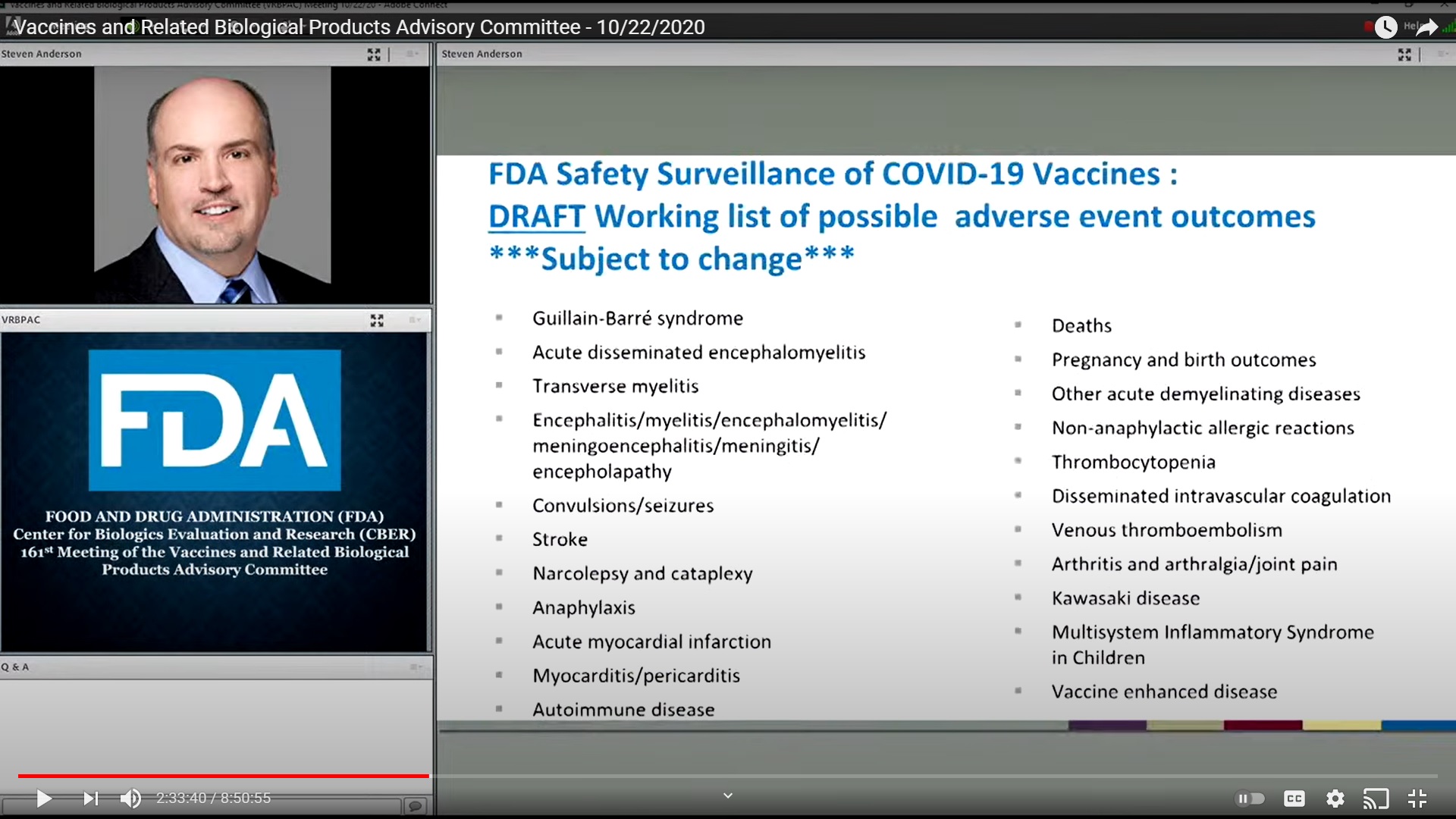ON 11 JANUARY 2023, AMPS WROTE TO MEMBERS PROVIDING IMPORTANT INFORMATION: ADMINISTERING OF COVID-19 VACCINATION IS LIKELY NOT AN INDEMNIFIED ACTION
The letter alerted doctors and nurses who may administer the Covid-19 vaccines that recent correspondence from government advisers outlined that a medical indemnity scheme for health professionals administering the COVID-19 vaccines was never established per se.
— AMPS
Unlike the case with manufacturers of COVID-19 vaccines, there appears to be no government liability protection beyond the vaccine injury ‘COVID-19 vaccine claims scheme’.
For consent to be legally valid…It must be given voluntarily in the absence of undue pressure, coercion or manipulation…It can only be given after the potential risks and benefits of the relevant vaccine, the risks of not having it, and any alternative options have been explained to the person.
The following video screen capture shows what the FDA knew on October 22, 2020. If your informed consent did not include this information, it was incomplete.

This list of possible adverse event outcomes appears in the video very briefly at 2:33:40.
Alternative options were available, but information about them was systematically being suppressed, disparaged, blocked, and denied by health departments and mainstream media to protect the legality of the Emergency Use Authorizations. The EUAs could not have been issued had alternatives been known.
Under section 564 of the Federal Food, Drug, and Cosmetic Act (FD&C Act), when the Secretary of HHS declares that an emergency use authorization is appropriate, FDA may authorize unapproved medical products or unapproved uses of approved medical products to be used in an emergency to diagnose, treat, or prevent serious or life-threatening diseases or conditions caused by CBRN threat agents when certain criteria are met, including there are no adequate, approved, and available alternatives.
In other words, if there is a viable option, an EAU should not be granted.
It might be that those who blocked information about alternative options could be held liable as well.
Might these concerns about indemnity apply in the United States as well?
Sources:
- November 19, 1992. CJ Mason, Brennan, Dawson, Toohey, Gaudron, and JJ McHugh. Rogers v Whitaker [1992] HCA 58, BarNet Jade. High Court of Australia.

https://jade.io/article/67721.
Judgment. - October 22, 2020. Vaccines and Related Biological Products Advisory Committee – 10/22/2020. U.S. Food and Drug Administration.


https://www.youtube.com/watch?v=1XTiL9rUpkg.
Video, Food & Drug Administration. - November 17, 2022. Nigel Murray. “Letter from Australian Government Department of Health and Aged Care to Ms Elizabeth Hart.”


https://vaccinationispolitical.files.wordpress.com/2022/11/mc22-018819-signed-highlighted-1.pdf.
Blog, PDF.
This is the correspondence that sparked the AMPS letter. - January 25, 2023. “Preparing for Vaccination.” The Australian Immunisation Handbook | Australian Government Department of Health and Aged Care.

https://immunisationhandbook.health.gov.au/contents/vaccination-procedures/preparing-for-vaccination.
Government. - January 11, 2023. “AMPS Important COVID-19 Vaccine Indemnity.” AMPS – Australian Medical Professionals’ Society.

https://amps.redunion.com.au/important-covid-19-vaccine-indemnity,
Local copy of letter.
General Website Link. - January 18, 2023. “AMPS Warns Medical Professionals of Indemnity Risks.” AMPS – Australian Medical Professionals’ Society.

https://amps.redunion.com.au/news/amps-warns-medical-professionals-of-indemnity-risks.
General Website Link. - US Food & Drug Administration. “Emergency Use Authorization.”

https://www.fda.gov/emergency-preparedness-and-response/mcm-legal-regulatory-and-policy-framework/emergency-use-authorization.
Food & Drug Administration.
This is an information page describing the Emergency Use Authorization policies.